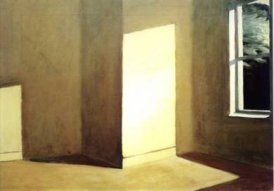Short Story: Theory
Normally when people are asked to write short stories they rush out and buy as many short story anthologies as possible and assume reading all the short stories ever written (impossible) will enable them to write better.
Naturally, the more you read the better you will write. But it also helps if you know about the recipe behind the writing. You wouldn't perform a surgery without knowin the different parts of the human body, so why expect to write a good short story without knowing the 'ingredients' to a good short story?
Fortunately for me in my first year at university one of the modules I did covered short stories. In my first year I had the enthusiasm of a bull charging at a red flag (totally lost it now!) and so I read everything in the library on short stories. I've been meaning to put my notes up on this blog since last year but I never seem to have the time!
So, below you will find different short story theorie and ideas and using these same ideas I've attempted to analyse a few short stories. Much easier to comment on other people's short stories than write my own. Besides, I'm far too sensitive about my own work...:-)
Incident v Character
M.H. Abrahams in his infamous 'Glossary of Literary Terms' identifies two types of short stories. The 'Story of Incident' and the 'Story of Character'. The 'story of incident' focuses on plot, the course and the outcome of events whereas the 'story of character' focuses on the psychological and moral qualities of characters.
Opening Sentences
(The passage below is from 'The way to write Short Stories' bu Micheal Baldwin, published by Penguin Book.)
Opening sentences should suggest one of the following three things: -
a. Something of moment is about to happen or is already happening.
b. We are being initiated into a fascinating world.
c. Suspending need for a or b because this writer is so engagingly witty.
Difference between Short Story and Novel
According to Charles May in 'The Short Story: The Reality of Artifice', the difference between the short story and the novel is that in the novel characters develop through time 'as they are conditioned or determined by their milieu' but in the short story the characters are already developed and 'are brought into conflict that reveals them'.
So if you're writing a short story you need to know your characters inside-out, they need to be developed already in your head and you need to reveal their characteristics and qualities to the reader by showing their reaction against a conflict. You don't need lengthy commentary like in a novel if you manage to do this well.
(unfinished)

No comments:
Post a Comment